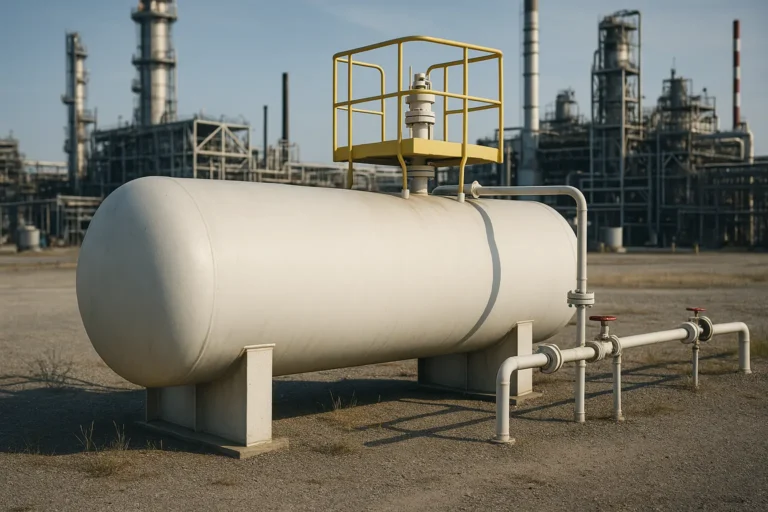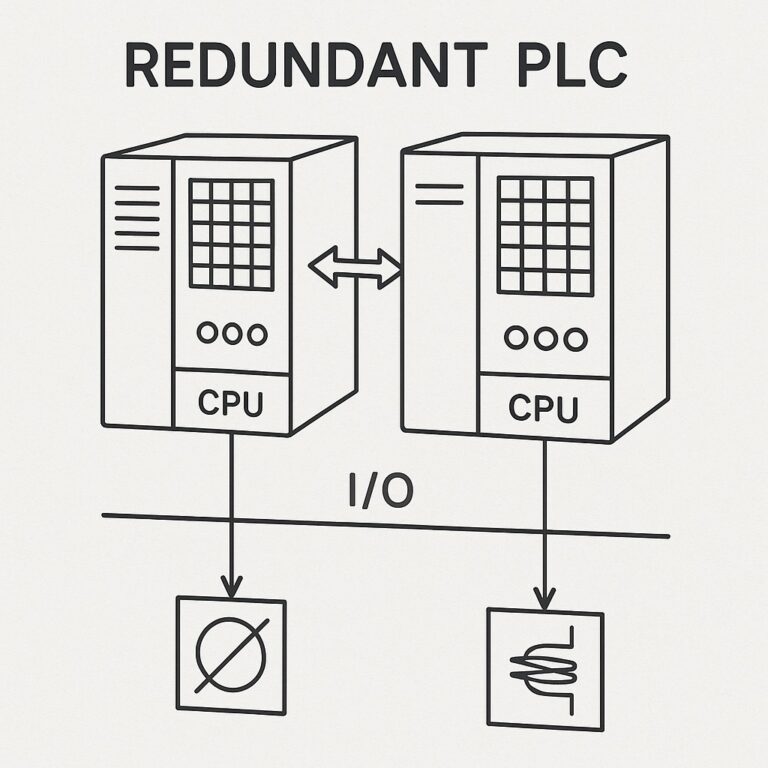The Importance of Underground Gas Storage and Energy Management
Sustainable management of energy resources has become a strategic priority in today’s global landscape. In this context, underground gas storage...
Devamını Oku

In today’s industrial production processes, precision, efficiency, and automation play a crucial role. Motion control systems regulate the movement of mechanical components, optimizing production lines, robotic systems, and CNC machines for better accuracy and performance. These systems integrate controllers, drives, actuators, and sensors to ensure smooth and accurate motion control.
The continuous advancement in motion control technologies has enabled industries to enhance speed, productivity, and energy efficiency. From manufacturing to aerospace, these systems provide high precision and repeatability, making them essential in modern industrial applications. With the integration of AI and IoT, motion control systems are evolving to offer real-time monitoring, predictive maintenance, and greater adaptability.
A motion control system is an automated system designed to precisely regulate the movement of mechanical components in various industrial applications. These systems use controllers, drives, actuators, and sensors to manage and optimize motion, ensuring efficiency, accuracy, and reliability in different processes.
The primary function of a motion control system is to control position, velocity, and acceleration of moving parts in machines and robotic systems. These systems can be classified into two main types:
Motion control systems are widely used in industries such as manufacturing, robotics, aerospace, and medical technology. By integrating modern technologies like AI, IoT, and machine learning, these systems continue to advance, offering smarter automation solutions for the future.
A motion control system functions by managing the movement of mechanical components through a combination of hardware and software elements. These systems operate by receiving input commands, processing them via control algorithms, and executing precise movements using actuators. The core components of a motion control system include:
In a closed-loop motion control system, feedback from sensors continuously adjusts motion to ensure precision and accuracy. This is crucial for applications requiring high repeatability, such as robotic arms, CNC machines, and automated assembly lines.
With advancements in AI and IoT, modern motion control systems can analyze real-time data to optimize performance, predict maintenance needs, and improve overall efficiency in industrial automation.
Motion control systems are used across a wide range of industries to enhance precision, efficiency, and automation. These systems help businesses increase productivity, reduce operational costs, and improve quality control. Below are some key industries where motion control systems play a crucial role:
By integrating motion control technologies, these industries achieve higher accuracy, faster production cycles, and reduced energy consumption, making them more competitive in a rapidly evolving market.
Motion control systems offer numerous benefits that improve industrial processes, optimize production, and enhance overall system efficiency. Some of the key advantages include:
By automating processes, motion control systems significantly reduce manual labor and increase production speed. This leads to higher throughput and improved manufacturing efficiency, allowing businesses to meet market demands more effectively.
These systems provide highly accurate positioning, velocity, and force control, reducing material waste and ensuring consistent quality in production. Industries like aerospace, medical technology, and semiconductor manufacturing benefit from micron-level precision.
Modern motion control systems are designed to minimize energy consumption by optimizing motion trajectories and reducing mechanical losses. This results in lower operational costs and contributes to sustainable manufacturing practices.
With these advantages, motion control systems have become indispensable in industrial automation, helping businesses achieve higher efficiency, better quality, and cost savings.
Motion control systems are widely used in various fields where precision, efficiency, and automation are essential. These systems ensure smooth and accurate movement in different industrial and commercial applications. Below are some of the most common areas where motion control systems are applied:
In robotics, motion control plays a crucial role in robotic arms, autonomous vehicles, and industrial automation. Robots rely on precise movement control to perform complex tasks such as welding, assembly, and material handling with high accuracy and efficiency.
Computer Numerical Control (CNC) machines use motion control systems to regulate the movement of cutting tools, drills, and lathes. These machines provide high-precision machining, enabling industries to produce complex parts with minimal errors and high repeatability.
Motion control is vital in the aviation and defense sectors, where unmanned aerial vehicles (UAVs), missile guidance systems, and satellite positioning require precise navigation and stability. Advanced motion control technologies ensure accurate movement control in extreme conditions.
As industries continue to evolve, motion control applications are expanding into smart factories, medical robotics, and autonomous transportation systems, enabling greater efficiency and innovation.
The future of motion control systems is being shaped by advancements in AI, IoT, and machine learning, leading to smarter, more adaptive automation solutions. As industries continue to demand higher precision, efficiency, and flexibility, motion control technologies are evolving to meet these needs.
Some key trends and future developments in motion control systems include:
As industries continue to embrace Industry 4.0 and smart manufacturing, motion control systems will play a crucial role in shaping the future of automation, robotics, and industrial efficiency.

Sustainable management of energy resources has become a strategic priority in today’s global landscape. In this context, underground gas storage...
Devamını Oku
In today’s industrial automation landscape, system failures and production downtimes can lead to significant financial losses and operational setbacks. To...
Devamını Oku
In today’s rapidly evolving energy landscape, adaptable and innovative technologies play a crucial role in shaping national and global energy...
Devamını OkuPROTECTION OF PERSONAL DATA
WEBSITE COOKIE POLICY
Your personal data; It is one of the leading principles of our Organization to protect the privacy of visitors to the website (www.adatech.com.tr) operated by ADATECH as the data controller. This Cookie Usage Policy (“Policy”) explains to all our website visitors and users which types of cookies are used and under what conditions.
Cookies are small text files stored on your device or network server by websites you visit on your computer or mobile device.
They are generally used to provide you with a personalized experience during your use of the website you visit, to improve the services offered and to improve your experience, and may contribute to ease of use while browsing a website. If you do not prefer the use of Cookies, you can delete or block Cookies in your browser settings. However, we would like to remind you that this may affect your use of our website. Unless you change your cookie settings in your browser, we will assume that you accept the use of cookies on this website.
1. WHAT KIND OF DATA IS PROCESSED IN COOKIES?
Cookies on websites, depending on their type, collect data about your browsing and usage preferences on the device you visit the site. This data includes information about the pages you access, the services and products you review, your preferred language option and other preferences.
2. WHAT is a solution and what are its intended uses?
Cookies are small text files that are stored on your device or network server through browsers by websites you visit. These small text files, which contain your preferred language and other settings on the site, help us remember your preferences the next time you visit the site and make improvements to our services to improve your experience on the site. Thus, you can have a better and personalized usage experience on your next visit.
The main purposes of using cookies on our Website are listed below:
3.TYPES OF COOKIES USED ON OUR WEBSITE
3.1. Oturum Çerezleri
Session cookies ensure that the website functions properly during your visit. They are used for purposes such as ensuring the security and continuity of our sites and you during your visit. Session cookies are temporary cookies, they are deleted when you close your browser and come to our site again, they are not permanent.
3.2. Persistent Cookies
These types of cookies are used to remember your preferences and are stored on your device via browsers. Persistent cookies remain stored even after you close your browser or restart your computer from which you visited our site. These cookies are kept in subfolders of your browser until they are deleted through your browser’s settings.
Some types of persistent cookies may be used to provide you with special suggestions, taking into account issues such as your purpose of using the Website.
Thanks to persistent cookies, if you visit our Website again with the same device, it is checked whether there is a cookie created by our Website on your device and if there is, it is understood that you have visited the site before and the content to be transmitted to you is determined accordingly and thus a better service is provided to you.
3.3. Mandatory/Technical Cookies
These cookies are essential for the website you visit to function properly. The purpose of such cookies is to provide necessary services by enabling the website to function. For example, it allows you to access secure parts of the website, to use its features, to navigate on it.
3.4. Analytical Cookies
They collect information about the way the website is used, the frequency and number of visits, and show how visitors navigate to the site. The purpose of using such cookies is to increase performance by improving the way the site functions and to determine the general trend direction. They do not contain data that could enable the identification of visitors. For example, they show the number of error messages displayed or the most visited pages.
3.5. Functional/Functional Cookies
It saves the choices made by the visitor within the site and remembers them on the next visit. The purpose of such cookies is to provide ease of use to visitors. For example, it prevents the site user from re-entering the user password on each page they visit.
3.6. Targeting/Advertising Cookies
They enable the measurement of the effectiveness of advertisements served to visitors and the calculation of the number of times the advertisements are viewed. The purpose of such cookies is to serve ads customized to the interests of visitors.
Likewise, they enable the detection of visitors’ interests specific to their browsing and the presentation of appropriate content. For example, it prevents the advertisement shown to the visitor from being shown again in a short time.
4. HOW TO MANAGE COOKIE PREFERENCES?
To change your preferences regarding the use of cookies or to block or delete cookies, simply change your browser settings.
Many browsers give you the option to accept or reject cookies, accept only certain types of cookies, or be alerted by the browser when a website requests to store cookies on your device so that you can control cookies.
It is also possible to delete cookies previously saved in your browser.
If you disable or refuse cookies, you may need to set some preferences manually, some features and services on the website may not function properly as we will not be able to recognize and associate your account. You can change the settings of your browser by clicking on the relevant link from the table below.
5. ENFORCEMENT OF WEBSITE PRIVACY POLICY
Website Privacy Policy …./…./…./…. . is dated. In case all or certain articles of the Policy are renewed, the effective date of the Policy will be updated. The Privacy Policy is published on the website of the Authority (www.adatech.com.tr) and made available to the relevant persons upon the request of the personal data owners.
ADATECH
Address: Esenyalı Neighborhood Yanyol Street Varyap Plaza No:61-148 Pendik / Istanbul
Telephone: +90 (216 ) 514 80 69
E-mail: [email protected]
Web Address: www.adatech.com.tr